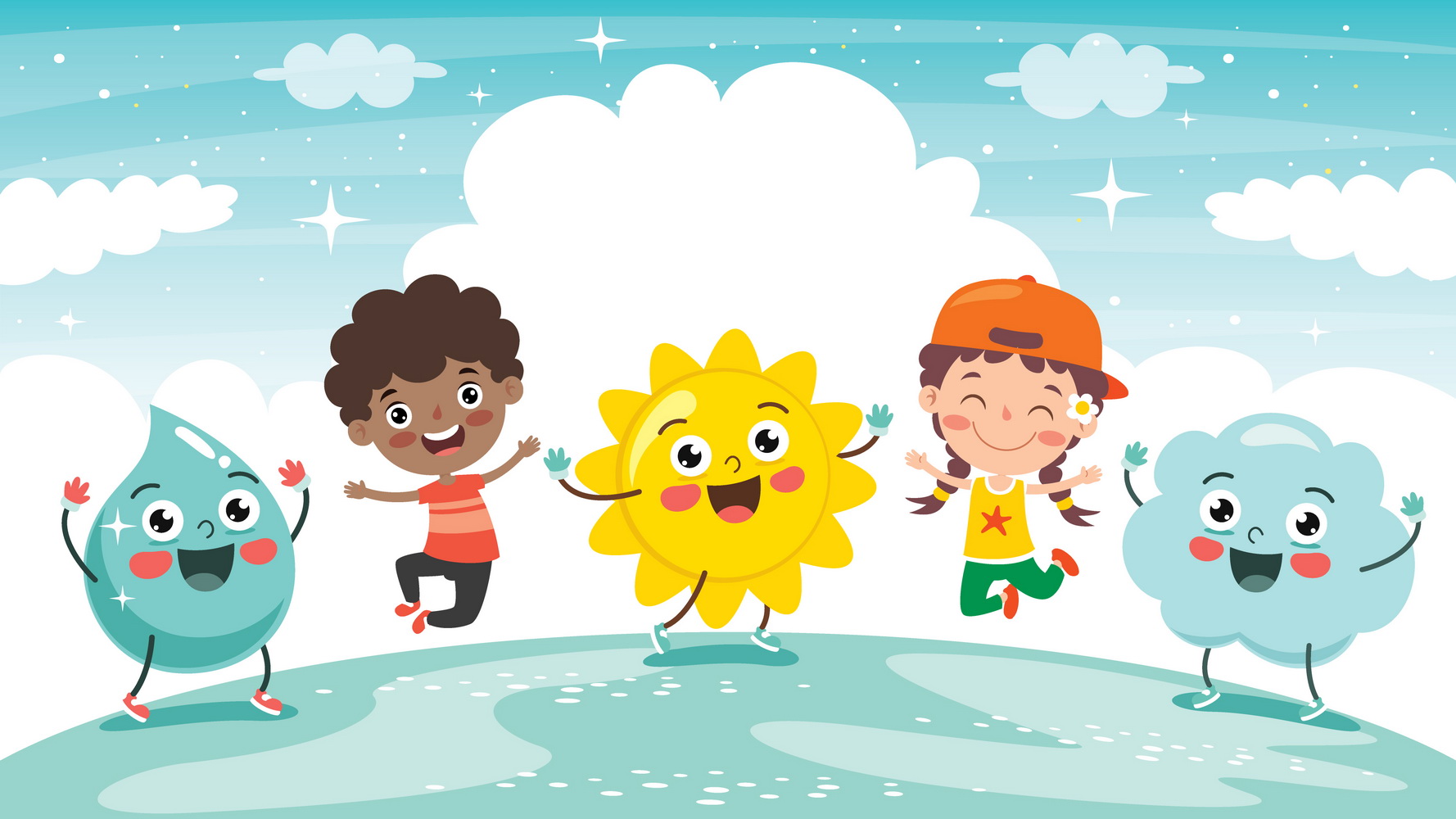Easy Reading Worksheets Activities With Answers for Ages 3-6
8 filtered results
-
From - To
Discover our collection of easy reading worksheets designed specifically for children ages 3-6. These engaging activities focus on developing essential reading skills through playful themes and skill-building exercises. With built-in answer keys, educators and parents can easily track progress and ensure effective learning. Each worksheet promotes vocabulary growth, comprehension, and phonemic awareness, making reading a fun experience. Perfect for classroom use or at-home learning, these printable resources foster a love for reading while reinforcing foundational skills. Explore our user-friendly platform today to access a variety of worksheets that will captivate young learners and enhance their reading journey!
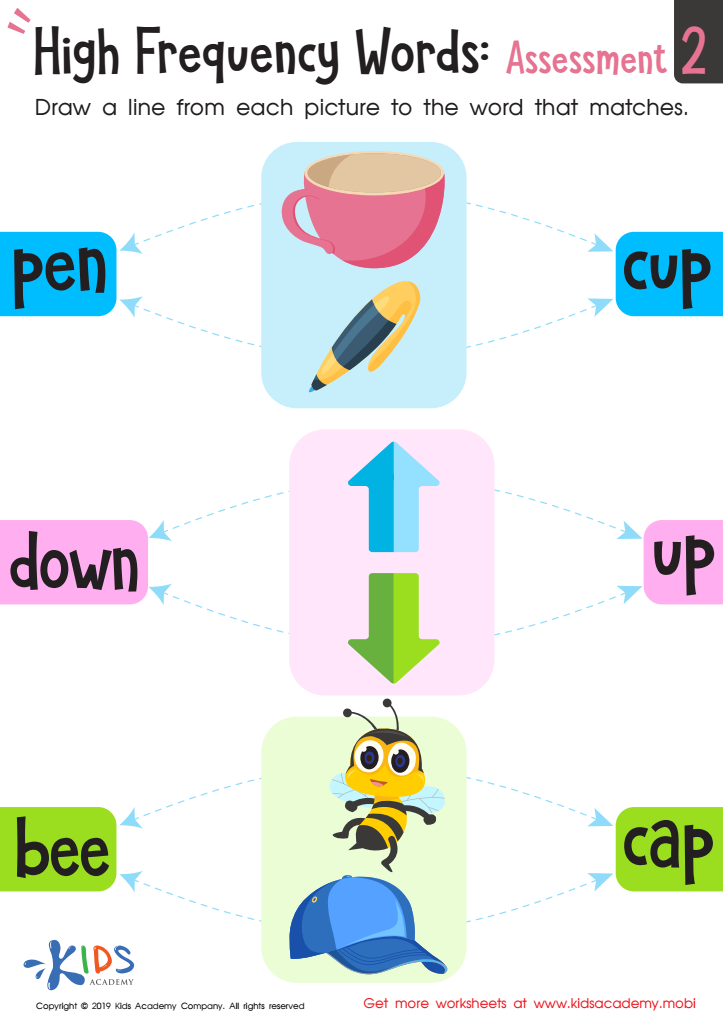

High Frequency Words: Assessment 2 Worksheet
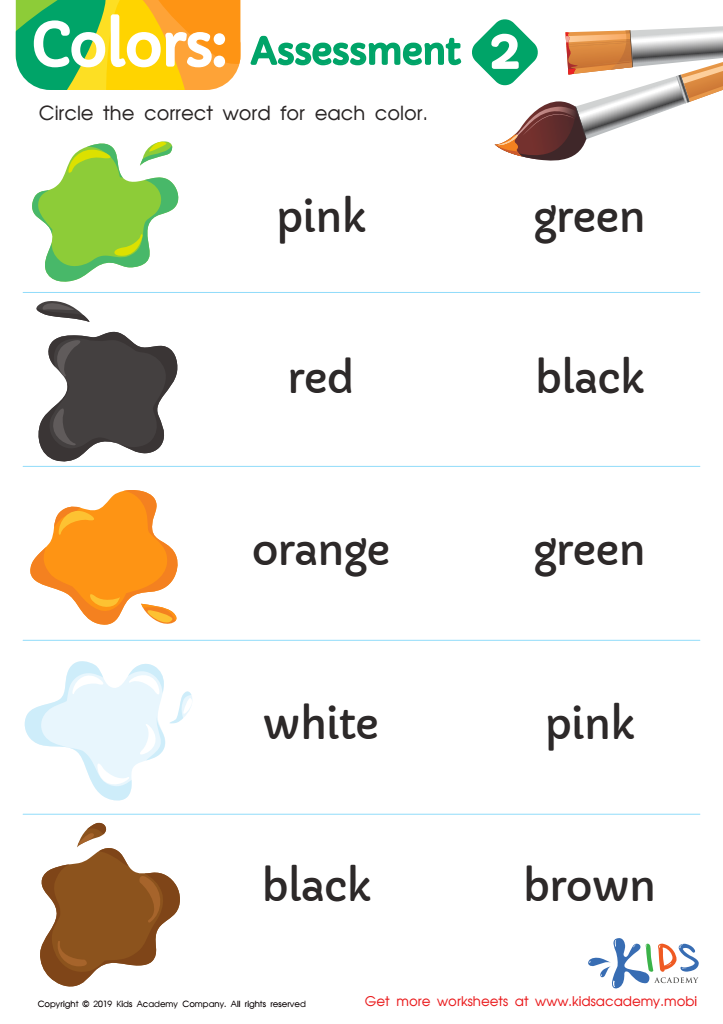

Colors: Assessment 2 Worksheet
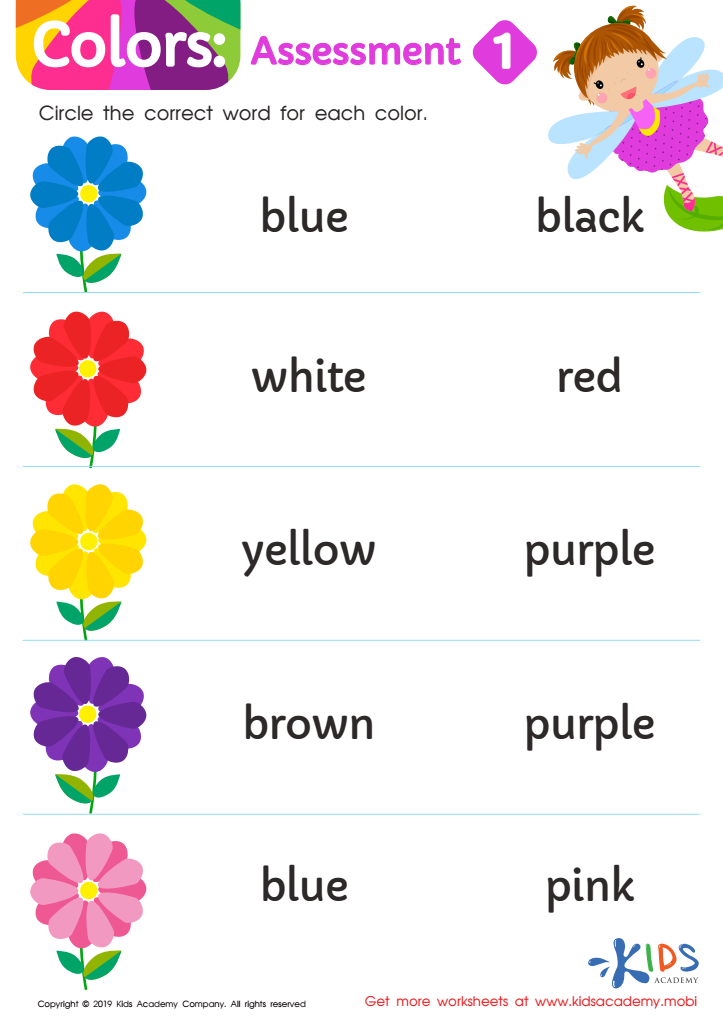

Colors: Assessment 1 Worksheet
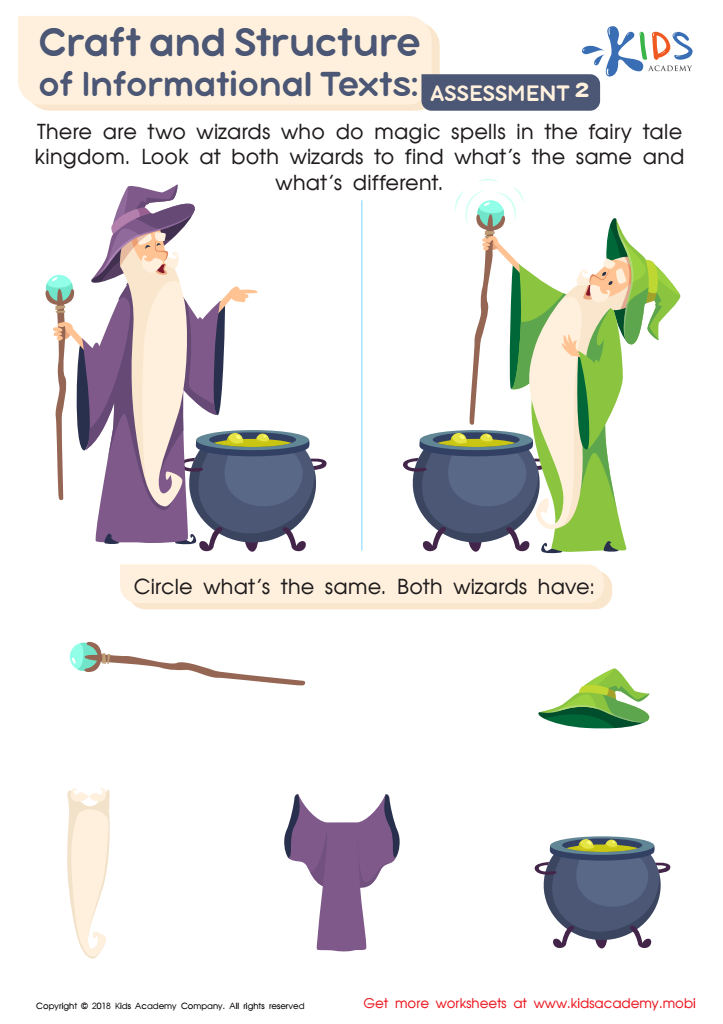

Craft and Structure of Informational Texts: Assessment 2 Worksheet
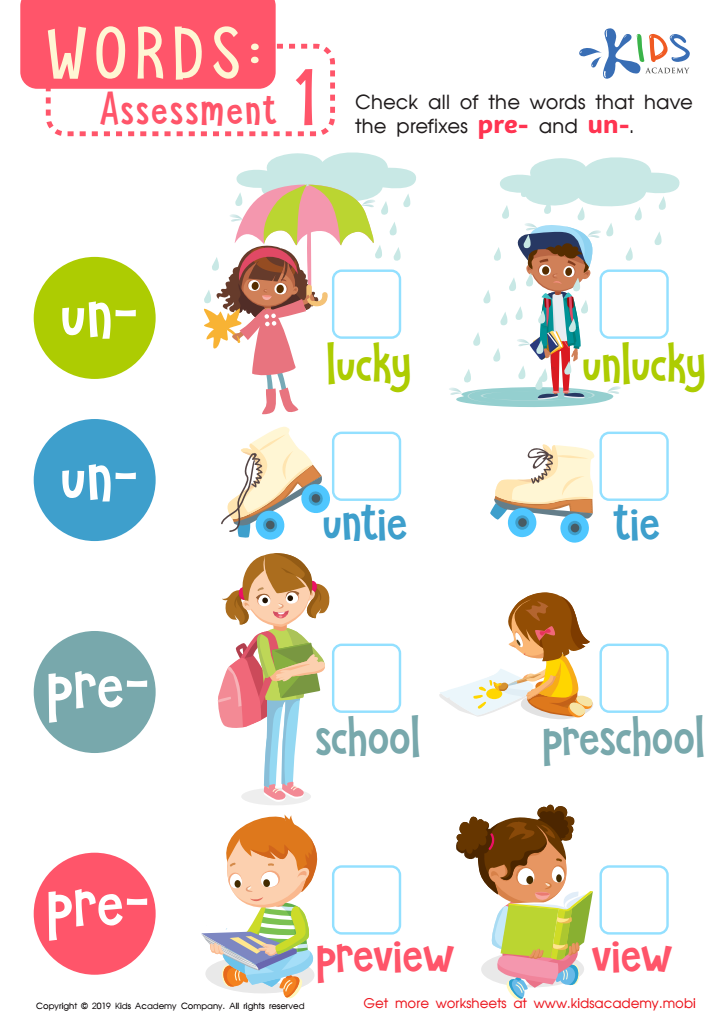

Words: Assessment 1 Worksheet
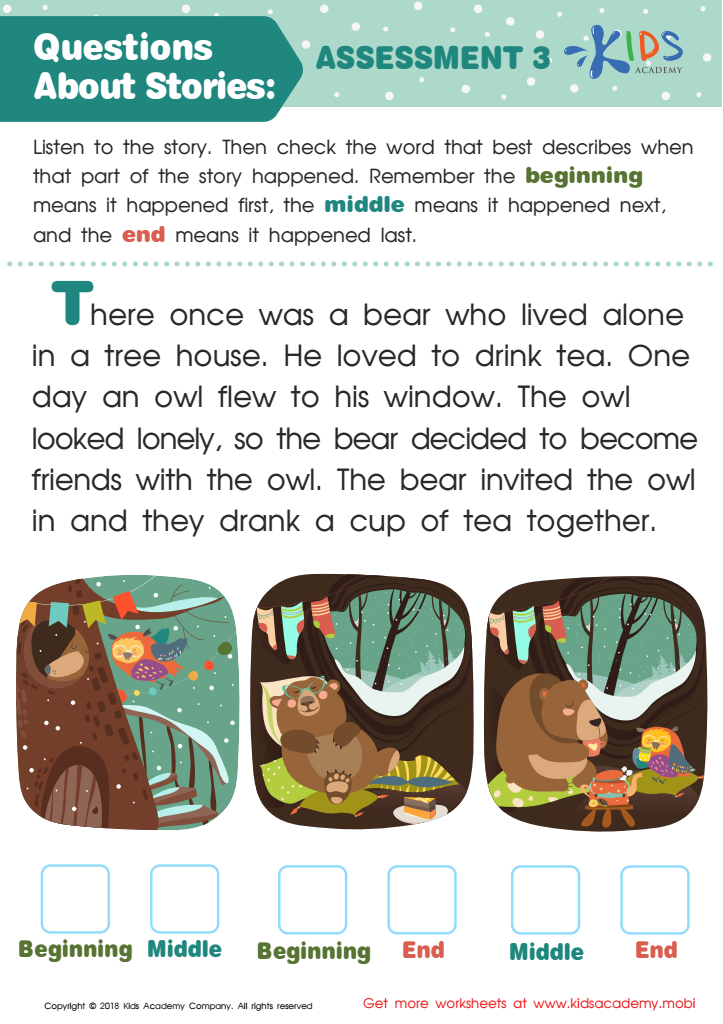

Questions About Stories: Assessment 3 Worksheet
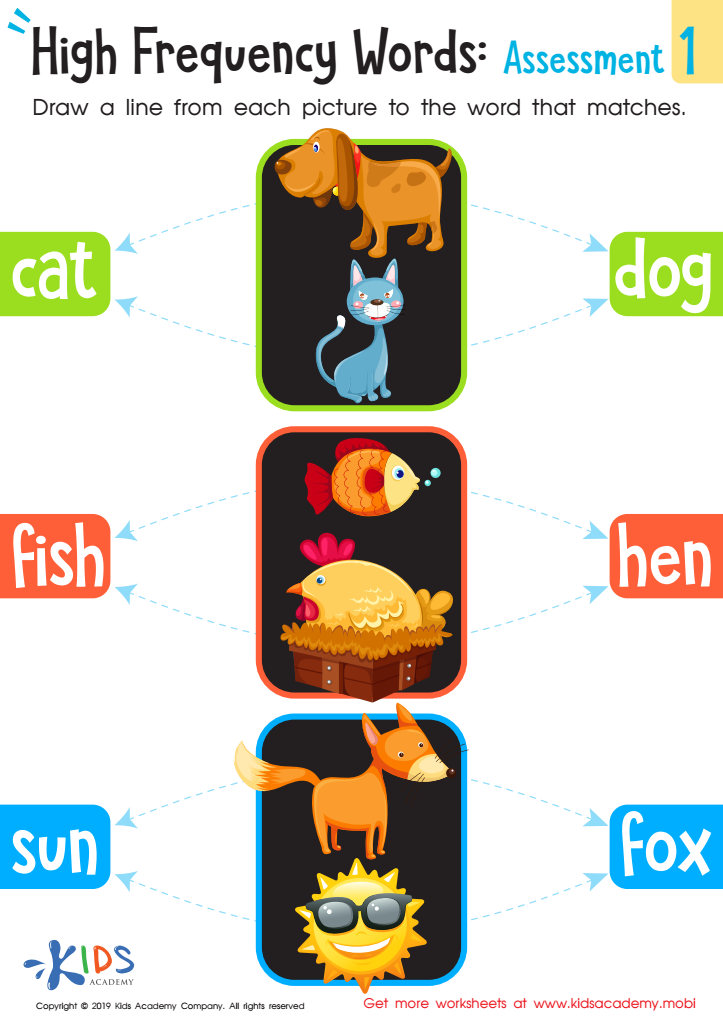

High Frequency Words: Assessment 1 Worksheet
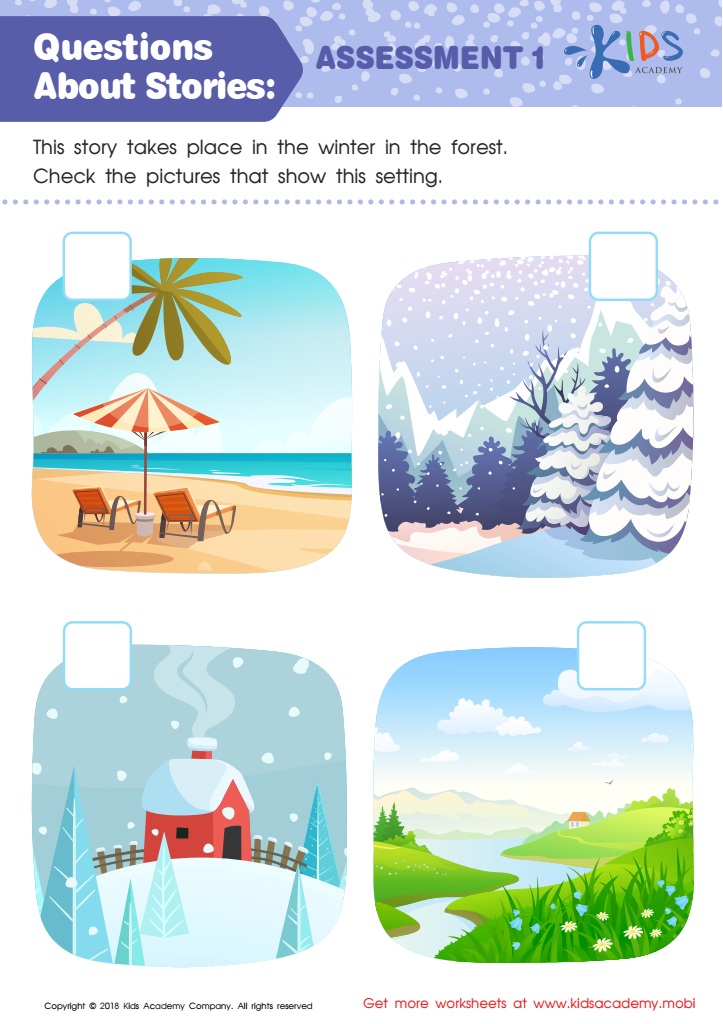

Questions About Stories: Assessment 1 Worksheet
Easy reading activities for ages 3-6 are crucial for early childhood development, and parents and teachers should prioritize them for several reasons. Firstly, reading is foundational to literacy and overall academic success. Engaging activities tailored for young learners cultivate a love for reading, making literacy more enjoyable and accessible. By providing a variety of interactive exercises—like rhymes, flashcards, and storytelling—children develop critical phonemic awareness, vocabulary, and comprehension skills.
Additionally, structured reading activities promote cognitive growth. They stimulate a child’s imagination and improve their ability to express thoughts verbally, fostering communication skills essential for their social development. Furthermore, these activities create bonding moments between parents and children or teachers and students, strengthening relationships through shared learning experiences.
Moreover, easy reading activities can be easily customized to cater to different learning styles, ensuring that each child receives individualized attention. By actively engaging with reading materials, children can grasp foundational concepts at their own pace, supporting their confidence and motivation.
Ultimately, investing time in easy reading activities prepares young learners for a lifelong journey of reading, learning, and exploration. Therefore, parents and teachers play a pivotal role in nurturing these essential skills during the formative years.

 Assign to My Students
Assign to My Students



